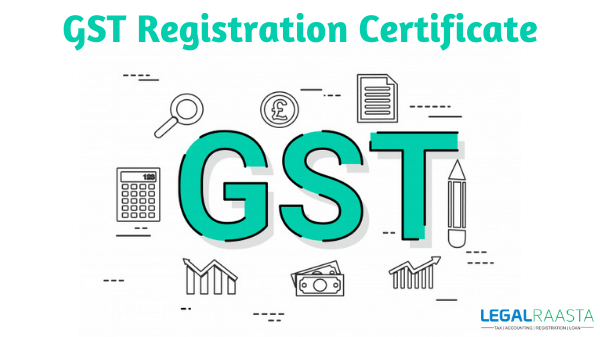From Beginning To End: The Ultimate Roadmap to GST Enrollment for Businesses Looking For Financial Stability
Navigating the intricacies of Product and Services Tax (GST) enrollment is a vital step for services striving for monetary security. From understanding the essential concepts of GST to abiding with post-registration guidelines, the procedure can appear discouraging in the beginning glimpse. Nonetheless, breaking down the roadmap into workable actions can improve the enrollment trip for organizations seeking to enhance their financial standing. Let's check out the essential parts that make up this supreme roadmap and find how each phase adds to laying a solid foundation for financial success.
Understanding GST Essentials
Exploring the essential principles of Goods and Provider Tax Obligation (GST) is important for acquiring an extensive understanding of its implications on businesses and the economic situation. GST is a value-added tax obligation imposed on many goods and services for domestic consumption. It has actually replaced multiple indirect taxes that existed in the pre-GST period, streamlining the tax structure and improving ease of doing service in India. Under the GST system, both products and services are taxed at a details price, which is figured out based on their category. If their yearly turnover goes beyond the threshold limitation set by the federal government, businesses are called for to register for GST. Input Tax Obligation Credit Report (ITC) is a significant attribute of GST, allowing businesses to declare credit scores for tax obligations paid on inputs, decreasing the total tax worry. Understanding the basics of GST is critical for companies to adhere to tax policies, manage their financial resources efficiently, and add to the nation's financial growth by joining a clear tax obligation system.
Qualification Standards for Enrollment
To sign up for GST, businesses should satisfy particular eligibility criteria established by the government. The primary eligibility need is that any kind of organization associated with the supply of products or services with a yearly accumulation turn over above the threshold limit set by the authorities have to sign up for GST. Since the present regulations, the threshold restriction for GST enrollment is a yearly aggregate turn over of 40 lakhs for businesses operating within a state, with the exception of unique category states where the restriction is 20 lakhs. In addition, particular companies are required to sign up for GST irrespective of their turnover, such as interstate distributors, laid-back taxable persons, and companies accountable to pay tax obligation under the reverse fee mechanism. It is critical for organizations to completely assess their turn over and deal kinds to identify their GST registration responsibilities precisely. Failure to register for GST when eligible can lead to charges and lawful repercussions, making it important for organizations to adhere to the defined eligibility criteria.
Records Required for Registration
Having met the qualification criteria for GST enrollment, services should currently ensure they have the requisite records in place to continue with the registration procedure effectively. The documents needed for GST registration generally consist of proof of organization constitution, such as collaboration deed, enrollment certification, or incorporation certificate for various kinds of services. Additionally, businesses need to provide papers developing the major location of business, such as a rental contract or power expense.
Step-by-Step Registration Process
Next, all required files according to the list given by the GST portal requirement to be posted. These records usually consist of evidence of organization address, registration and identity proofs of marketers, economic declarations, and service entity's frying pan card.

Post-Registration Conformity Standards

Conclusion
In conclusion, businesses looking for financial stability must recognize the essentials of GST, satisfy qualification standards, collect essential papers, comply with the step-by-step enrollment procedure, and look at these guys follow post-registration standards - Best GST registration services in Singapore. By sticking to these steps, companies can guarantee compliance with tax obligation guidelines and maintain financial stability in the future
Furthermore, certain businesses are called for to sign up for GST irrespective of their turn over, such as interstate vendors, casual taxable individuals, and services liable to pay tax obligation under the reverse charge system.Having actually satisfied the qualification requirements for GST registration, services should now ensure they have the requisite records in location to continue with the enrollment see process successfully. The files needed for GST registration normally consist of proof of company constitution, such as collaboration action, enrollment certificate, or incorporation certificate for various types of businesses. In addition, companies require to provide papers establishing the major place of service, such as a rental agreement or electrical energy costs.Beginning the GST registration process includes a collection of organized actions to make sure a certified and smooth enrollment for companies.
Comments on “Discovering Trustworthy and Reliable Best GST Registration Services in Singapore”